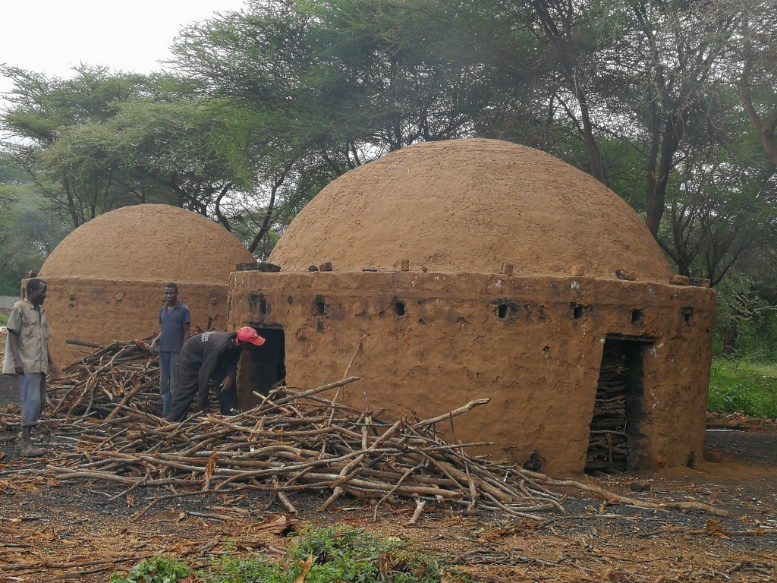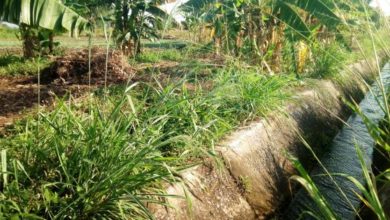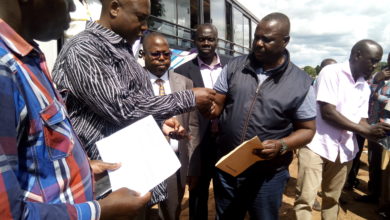
EnvironmentNational
UGANDA: KENYA PUT BANS ON CHARCOAL, ESTABLISHED CHARCOAL PRODUCTION LAW
Kenyan Environmental Experts say there is a new method of producing charcoal that is friendly to mitigate climatic change through kilns, FILED PHOTO
Kenya Government instead established Charcoal Producer Association (ACP) to all commercial charcoal producers on community land to organize themselves, form and duly register charcoal producer associations, have a code of practice for purposes of self-regulation and ensure that its members implement environmental management/conservation plans;
GULU-UGANDA: Nellie Caroline Oduor the scholar from Kenya observed during her presentation on rethinking sustainable development to mitigated charcoal, that biomass-main source of energy for Kenyan households, charcoal provides most urban energy 82 percent and total percent rural energy demand for fuel wood is 18.7 million per year, while demand for charcoal is at 16.3 million annually.
“Kenya has tried to ban charcoal production in order to protect its forests and woodlands, but Charcoal production and sales occur mostly in the informal sector, those efforts have failed.” Caroline Oduor argued.
Caroline Oduor says thus, when the first Forests (Charcoal) Regulations of 2018 was put 2018, it was not working but now the new Forests Charcoal Regulations 2019 has been put to sort this problem. The requirements of the forest charcoal regulation 2018 the purpose and scope of the rule is to provide guide for the sustainable management of the charcoal industry in Kenya, the guideline is to be applied to the entire charcoal value chain from production, transportation and marketing
She argued that this include the people from community to apply for a charcoal production license from the County Government, thus the benchmarks is to show evidence of land ownership or consent from land owner and protect the tree species are not endangered, threatened or protected use efficiency charcoal kilns.
“Kenya Government instead established Charcoal Producer Association (ACP) to all commercial charcoal producers on community land to organize themselves, form and duly register charcoal producer associations, have a code of practice for purposes of self-regulation and ensure that its members implement environmental management/conservation plans;” Caroline Oduor stressed.
She says that establish from its revenues, a conservation fund to finance implementation of its environmental management and conservation plans; Designate charcoal collection points, and issue certificates of origin where applicable was pre recondition for charcoal production associations.
“They are to assist in enforcing the provisions of these regulations and County legislation for sustainable management of the charcoal industry.”
The Kenya government also came up with guidelines on formation of Charcoal Producer Associations, CPAs registered in accordance with the Societies Act
They may be formed at Ward, Sub-County or County level. Each Association should keep a list of current officials, its constitution, By-Laws and Code of practice. A list of places the members operate form, a record of all licenses and permits relating to the activities of the association with regard to charcoal production.
Adding that transportation and trade and progress in implantation of conservation plans information relating to ownership of the land and activities on the land in regard to the charcoal production. Records of technology the members use in charcoal production, Caroline said.
Other important framework that was put in place are the transportation of charcoal, and need for a valid movement permit from KFS. Need for a certificate of origin for the charcoal, have original receipt form the vendor, she outlined.
Kenya environmental expert says the country also demand marketing and trade in charcoal, the transporter need a valid trade license from the County government. However, they shall maintain records of certificates of origin and movement permits for all the charcoal in their control, possession and/or custody. And a charcoal collection point for Samburu CPA in Kwale County
Caroline Oduor notes that there are challenges in implementation of the charcoal regulations, in all police check point, each police traffic demands for money, and yet a beg of charcoal from the grassroots are bought at KSX 300 but when the charcoal reached Nairobi city, the price goes up KSX 4,000 a beg, she wondered.
She says County governments are to implement the charcoal regulations and standards, charcoal production is decentralized yet implementation of the regulations is centralized.
Thus each county is to adopt county-level charcoal policies – not all counties have done so, this limited financing for sustainable charcoal activities. And costs of forest management interventions, purchase of improved charcoal production technologies
Farm forestry and reforestation activities so as to establish a sustainable supply of biomass.
She noted that the challenges to implement the Woodlands Management Manual
Weak enforcement of a formal permit system. Says the informal system of bribes is well established that people have come to view it as an acceptable part of charcoal trade
“So producers – produce at night then douce the kiln with water to conceal it
Transporters constant cat and mouse game to avoid the check points and thus bribes
Transport on motor bikes/bicycles”
Caroline Oduor mention other loophole that the CPA’s capacity to comply with the regulation, the CPAs have limited capacity to ensure compliance with the regulation
The CPAs have to establish a written constitution. Develop a conservation and reforestation plan, document the kiln technologies used document the tree species used to make charcoal.
In conclusion Caroline notes that other challenges an Environmental Impact Assessment has to be undertaken, this tend to be very expensive for the CPAs. They have to implement the environmental management/reafforestation/conservation plan submitted with the application, she said.
Way forward
Caroline Oduor says charcoal production is a devolved function and thus lies squarely with the county governments, chain of custody in the whole value chain for Prosopis juliflora was done (a model has just been done for Baringo County.
Adding that the counties signed the Transition Implementation Plans (TIPs) – thus need to access the funds for forest extension activities. Each county is to adopt county-level charcoal policies and set up woodlots for fuel wood, bamboo practice woodland management – enhance regrowth/coppicing tree species to grow into trees.
Establish an effective mechanism for: Monitoring implementation of reafforestion after approval, identifying fake or fogged certificates of origin and movement permits
Oduor says for example, bar codes tracking vehicles charcoal to urban markets. Establish measures to reward harvesting from sustainably managed sources (benefit sharing) so that charcoal producers and transporters can retain and reinvest charcoal revenues from fees and licenses in sustainable forest management Capacity building of CPAs and transporters on the benefits of legal and sustainable charcoal production and registering as members of associations, she said.







